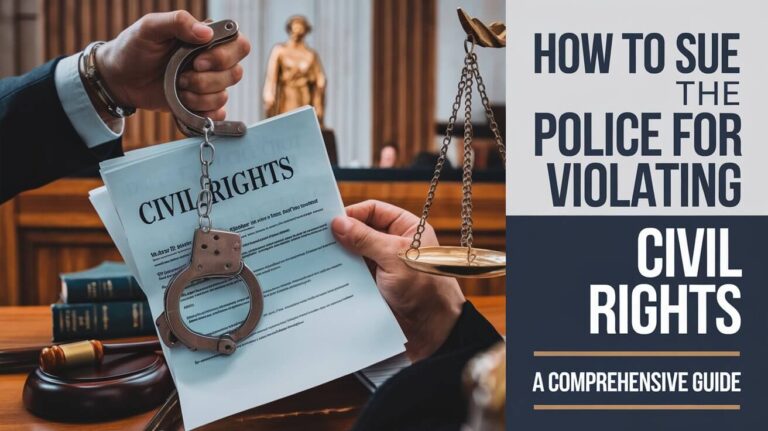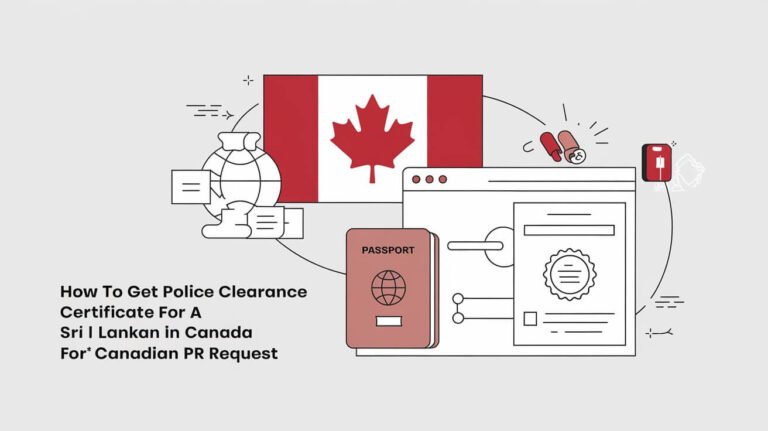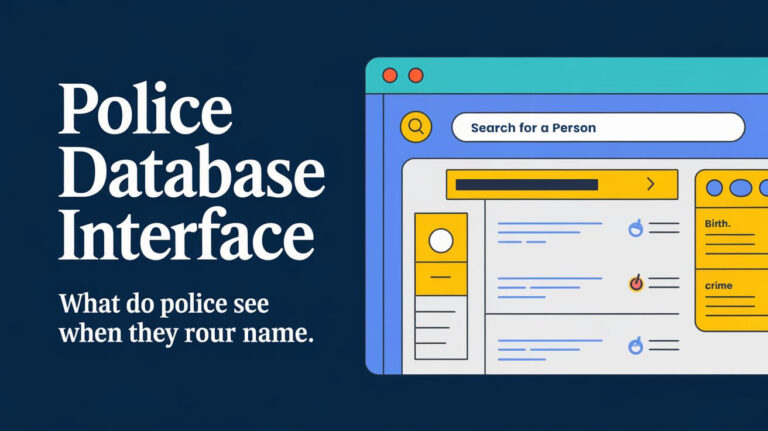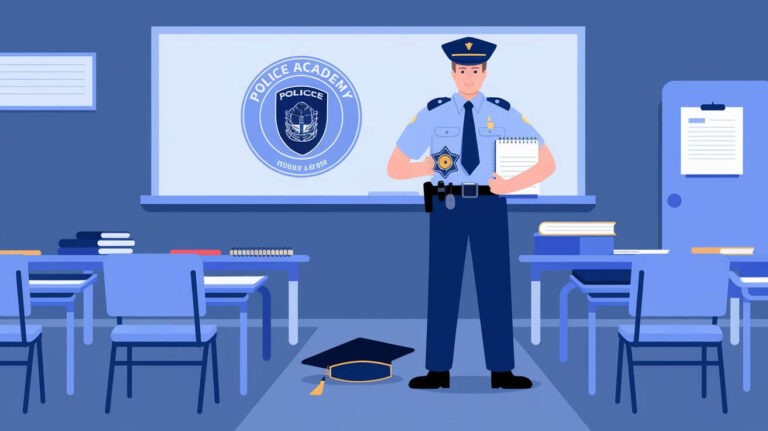How To Recruit Police Cadets: Steps for Effective Hiring
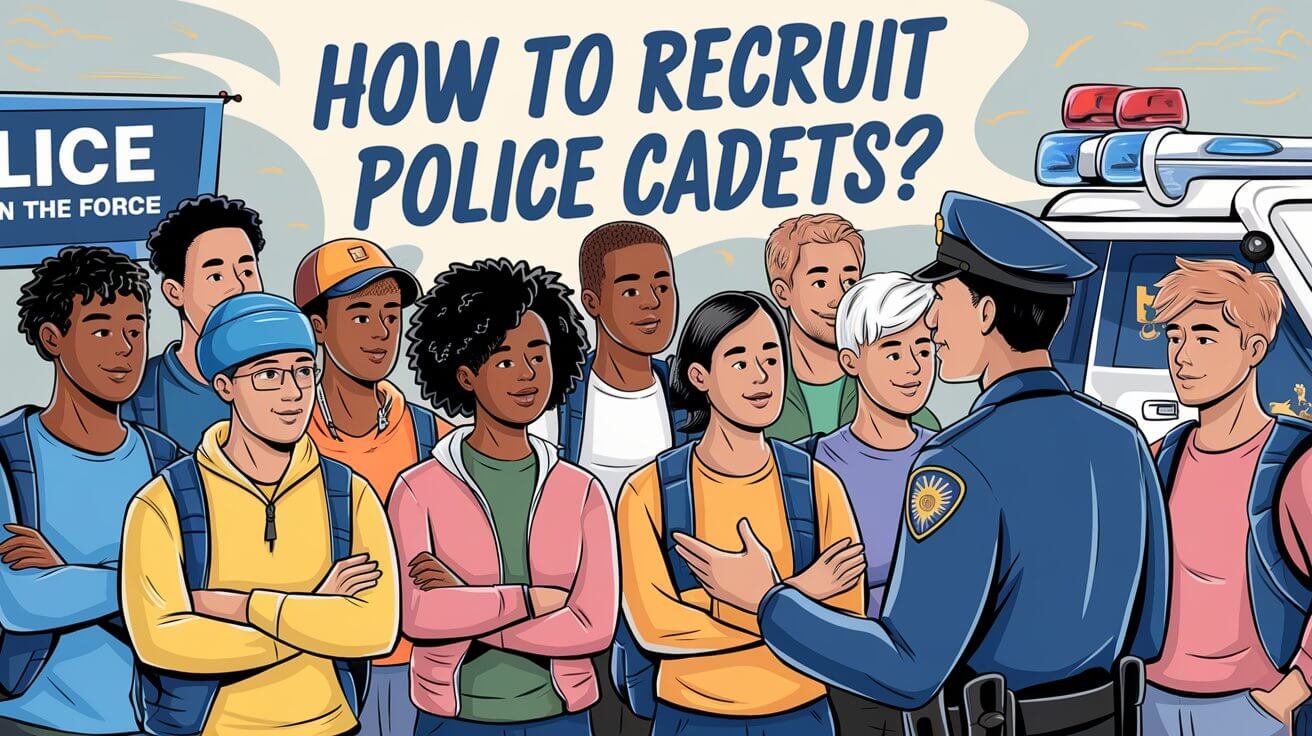
Recruiting police cadets is key to a strong, diverse law enforcement team. It needs a deep understanding of the cadet program and good recruitment strategies. The cadet program lets young adults start a law enforcement career, with benefits like tuition help and flexible hours.
Agencies like the Seattle Police Department and Washington State Patrol offer great opportunities. By showing the program’s perks, agencies can draw in the best candidates. This builds a solid base for future law enforcement careers.
To attract police cadets, agencies must know the program’s details and benefits. They should use targeted strategies to appeal to ambitious young adults. This includes working with schools and community groups to promote the program.
It’s also important to clearly explain the application process and what’s needed. By focusing on the program’s advantages, agencies can find and keep skilled candidates. This helps create a diverse, strong law enforcement team, supporting successful careers.
Police Cadet Program Fundamentals
Police cadet programs offer young people a chance to learn about law enforcement. To join, they must meet certain requirements like age, where they live, and education. For example, the Mobile Police Department’s Cadet Program is for those 17 to 22 years old. The New York City Police Cadet Corps is for 18 to 33 years old.
Being qualified is key to getting into these programs. You need a high school diploma or GED, to be a U.S. citizen, and to have a valid driver’s license. You also have to pass a written test and show you have good morals. The rules that govern these programs are important too. They make sure cadets are treated fairly and paid right. The Fair Labor Standards Act is one of these rules.
Program Requirements
- Age: between 17 and 22 years old (Mobile Police Department) or between 18 and 33 years old (New York City Police Cadet Corps)
- Residency: varies by department
- Education: high school diploma or GED
- Valid driver’s license
- Passing a written exam
- Demonstrating good moral character
Department Qualifications
Police departments have their own rules for who can join. You must be a U.S. citizen, have no serious crimes on your record, and have a valid driver’s license. The California POST Entry Level Law Enforcement Test Battery (PELLET B) is also part of the test. You need a T-SCORE of 45 to pass.
Legal Framework
The laws that govern police cadet programs are very important. They make sure cadets are treated fairly and paid right. The Fair Labor Standards Act is one of these laws. Cadets do things like go on ride-alongs, help with stings, and help with community events.
Essential Qualifications for Police Cadets
To start a career in law enforcement, you need to meet certain requirements. These rules change by department. For example, the Flower Mound Police Department in Texas requires you to be at least 21, have a valid driver’s license, and a clean record.
They also ask for a valid state driver’s license. If you’re from out of state, you must get a Texas license within 30 days.
When it comes to education, you need at least 30 college credits with a 2.0 GPA. Or, you can have two years of service in the U.S. Armed Forces. This is key for law enforcement jobs. It shows you have a good education and work ethic.
Cadet training programs, like those at the Washington State Patrol, also look for a high school diploma or its equivalent.
Some important qualifications for police cadets include:
- A minimum age of 21
- A valid driver’s license
- A clean criminal record, with no Class A misdemeanor or above convictions
- Ability to distinguish between red, green, and yellow
- No excessive marijuana use and no marijuana use in the past two years
- No convictions involving family violence
Meeting these qualifications helps you succeed in law enforcement. With the right training, you can become a skilled and dedicated officer. You’ll serve your community with honor and integrity.
Strategic Outreach Methods
Police departments use many ways to find and hire new officers. They use digital platforms, community partnerships, and schools to find a variety of candidates. For example, the New York City Police Department uses social media and job boards to find candidates.
Some key strategies for outreach include:
- Using digital platforms to promote police jobs
- Building partnerships with communities to find diverse candidates
- Working with schools to attract young people to law enforcement
Digital Platforms
Digital tools are great for police recruitment. They help reach many people from different backgrounds. Social media, job boards, and other online channels help police departments find the best candidates.
Community Partnerships
Community partnerships are key for police recruitment. They help police departments connect with local groups and find diverse candidates. By working with community groups, police can attract candidates who want to serve their communities.
Application Process Design
Police application process is key in finding the best candidates for law enforcement jobs. Police departments use online portals and tests to make the process smoother. For example, the Los Angeles Police Department has an online portal to cut down on paperwork.
A good application process helps attract and keep the best candidates. Here are some important features:
- Clear instructions and guidelines for applicants
- Easy-to-use online application portals
- Comprehensive assessment tests to evaluate candidate skills and abilities
- Regular updates and communication with applicants throughout the process
Adding these features, police agencies can better recruit top talent. An effective application process is vital for a diverse and skilled police force.
Physical Fitness Standards
Police departments have strict physical fitness standards for cadets. These include strength, endurance, and fitness tests. For example, the FBI requires cadets to pass a 1.5-mile run, push-ups, and sit-ups.
The fitness test for police cadets includes a 1.5-mile run. Men need to finish in 10:30 to 12 minutes, and women in 13:30 to 16 minutes. They also have to sprint 300 meters in under 78 seconds.
Push-ups and sit-ups are key parts of the test. The Houston Police Department wants 25 push-ups in a row. Dallas Police requires 14 sit-ups in one minute.
Strength Requirements
Strength is a big part of police fitness standards. Departments test push-ups, sit-ups, and other exercises. The San Antonio Police Department uses a point system for these tests, with a minimum score of 190.
Endurance Benchmarks
Endurance is also critical. It shows a candidate’s ability to keep going during long tasks. The 1.5-mile run and 300-meter sprint are key tests. They help show if a cadet can handle the physical demands of police work.
Fitness Test Components
The fitness test for police cadets covers many areas. It includes:
- 1.5-mile run
- 300-meter sprint
- Push-ups
- Sit-ups
- Vertical jump
Meeting these standards shows a cadet is ready for police work. It ensures they have the strength and endurance needed.
| Department | 1.5-mile run time | 300-meter sprint time | Push-ups | Sit-ups |
|---|---|---|---|---|
| Houston Police Department | 10:30-12 minutes | 78 seconds | 25 continuous push-ups | 14 sit-ups in a minute |
| Dallas Police Department | 10:30-12 minutes | 78 seconds | 25 continuous push-ups | 14 sit-ups in a minute |
| San Antonio Police Department | 10:30-12 minutes | 78 seconds | 25 continuous push-ups | 14 sit-ups in a minute |
Background Check Protocols
Police departments must do detailed background checks on new recruits. This includes looking into their criminal history and checking references. It’s a key part of hiring for law enforcement jobs, making sure only the right people are chosen.
The check-up process looks at the candidate’s past crimes, credit, and who they know. For instance, the New York City Police Department checks everything about a candidate. They look at their education, work history, and who they know.
Here are some important parts of the background check:
- Criminal history checks to find out about past crimes or charges
- Reference checks to confirm who the candidate knows
- Credit history checks to see if they handle money well
- Verifying education and work history to check their qualifications
Doing deep background checks, police agencies make sure they hire the best. They want people who are good for the job and who act with integrity and professionalism.
Interview Techniques for Cadet Selection
Police departments use different interview methods to check if a candidate is right for a law enforcement job. The Los Angeles Police Department, for example, uses a panel interview. This helps them see how well a candidate can communicate, solve problems, and make decisions.
The oral interview is a key part of becoming a cadet. Here are some important things to know:
- Candidates will get about nine interview questions and have 25 minutes to answer them all.
- They will get a handout with five of the nine questions to prepare in 15 minutes.
- Candidates can only bring a watch or timing device to the test site.
To do well in the oral interview, candidates need to be ready for scenario-based questions. These questions check if they have the skills and qualities needed for a law enforcement career. By mixing different interview techniques, police departments can pick the best candidates for cadet jobs.
| Interview Component | Description |
|---|---|
| Initial Screening | Evaluates a candidate’s basic qualifications and suitability for the role. |
| Panel Interview | Assesses a candidate’s communication skills, problem-solving skills, and decision-making skills. |
| Scenario-Based Questions | Evaluates a candidate’s abilities and personal characteristics vital to the effective performance of law enforcement careers. |
Medical Examination Requirements
When you want to be a police officer, you must pass a detailed medical check. This is key to make sure you’re healthy enough for the job. For example, the New York City Police Department checks cadets thoroughly. They look at their health history, do a physical exam, and check their mental health.
This medical check is a big part of becoming a police officer. It finds any health problems that might stop you from doing your job well. You’ll have to pass tests like vision and hearing checks, and your blood pressure will be checked. You need to have good vision and hearing to pass.
Here are some important things you’ll need to do in the medical exam: * You’ll need to see well enough to pass a vision test. * Your hearing will be checked to make sure you can hear different sounds. * Your blood pressure must be under control. * You’ll fill out a Medical Questionnaire and have a physical exam by a doctor or assistant.
Police Cadet Training Framework
Police cadet training is key for those wanting to join law enforcement. It includes an academy, field training, and checks to make sure cadets are ready. For example, the FBI Academy offers a detailed program with classes, exercises, and field training.
The academy gives cadets a strong base in law enforcement. They learn about criminal law, firearms, and first aid. Field training lets them practice these skills in real situations.
Key Components of Police Cadet Training
- Academy structure: classroom instruction and practical exercises
- Field training components: hands-on experience in real-world scenarios
- Performance metrics: evaluation of cadet performance and progress
Basic police training in the U.S. lasts about 647 hours. States require between 0 to 1,321 hours. Field training is shorter, lasting around 52 hours, with state needs from 0 to 960 hours.
The Gaithersburg Police Department has a Field Training Officer Program. It gives cadets practical experience and tuition help if they finish successfully.
| Training Component | Average Length (hours) | State Requirements (hours) |
|---|---|---|
| Basic Police Training | 647 | 0-1,321 |
| Field Training | 52 | 0-960 |
With a solid training framework, law enforcement agencies can prepare cadets well. This ensures they can serve their communities with professionalism and integrity.
Budget Planning for Cadet Programs
Effective police budget planning is key for cadet programs’ success. These programs are vital for the future of law enforcement. Police departments are struggling to fill positions, with a big jump from 25 percent to 78 percent between 2020 and 2022. It’s important to use resources well.
The New York City Police Department has a budget for cadet programs. It includes money for tuition, equipment, and training.
To use resources wisely, police departments can follow these steps:
- Use funds for tuition help to attract good candidates
- Invest in equipment and training to improve cadet skills
- Work with schools to support cadet programs
The City of Charlotte’s FY 2024 JAG funding shows a big commitment. It has $303,834 for the Police Cadet Program. This shows a strong support for law enforcement careers and the challenges police face.
| Department | Budget Allocation | Percentage of Total Budget |
|---|---|---|
| Police Cadet Program | $303,834 | 62.8% |
| Crime Laboratory Overtime | $7,752 | 1.6% |
| Patrol Overtime | $172,509 | 35.6% |
Focusing on police budget planning, agencies can help cadet programs. This supports successful law enforcement careers.
Retention Strategies for Police Cadets
Police departments struggle to keep qualified cadets, with many leaving in the first five years. To solve this, departments can use career development, mentorship, and incentives. The Los Angeles Police Department has a mentorship program. It pairs new cadets with experienced officers for support and guidance.
Some key strategies for keeping police cadets include:
- Providing opportunities for career development and advancement
- Offering mentorship programs that pair experienced officers with new cadets
- Implementing performance incentives, such as bonuses or promotions, to recognize and reward outstanding performance
Investing in their officers, police departments can reduce turnover. This builds a strong team of law enforcement professionals. It also improves public safety and how people view the police.
According to the National Employee Survey – Law Enforcement (NES-LE), 63% of law enforcement employees find technology helpful. It makes their jobs easier and reduces errors. By using technology and effective retention strategies, police departments can support their officers better.
| Department | Retention Strategy | Outcome |
|---|---|---|
| Los Angeles Police Department | Mentorship program | Improved officer satisfaction and retention |
| California Highway Patrol (CHP) | Shortened training academy program and paid cadet training | Increased recruitment and retention of qualified cadets |
The Bottom Line
It’s key to find and keep good police cadets to make a strong, diverse police force. Departments can do this by reaching out in new ways, making the application process easy, and giving great training. This helps build a team of skilled law enforcement officers.
The New York City Police Department has a great police cadet program. It includes community work, career growth, and rewards for good work. This approach has helped them build a team of dedicated law enforcement careers.
President Obama’s task force and the “Hiring for the 21st Century Law Enforcement Officer” forum showed challenges in finding police recruits. But, by using the best methods and always improving, departments can meet these challenges. This will help make a better future for everyone.
Common Queries
What are the benefits and requirements of police cadet programs?
Police cadet programs offer many benefits. These include help with tuition, flexible work hours, and chances for promotion. But, they also have certain requirements. Candidates must meet age, residency, and education standards.
Agencies need to know these details well. This helps them find and keep the right candidates.
What are the essential qualifications for police cadets?
Police cadets need a high school diploma and a valid driver’s license. They must also have a clean criminal record. This ensures a strong and qualified team of law enforcement professionals.
How can police departments use strategic outreach methods to recruit future cadets?
Departments can use digital platforms like social media and online job boards. They can also partner with community groups and schools. This helps reach and recruit a diverse group of candidates.
What considerations should be made in the police cadet application process?
Departments can make the application process better. They can use online portals and assessment tests. This makes the process efficient and attracts the best candidates.
What are the physical fitness standards for police cadets?
Police departments have clear physical fitness standards. These include strength, endurance, and fitness tests. These standards prepare cadets for the job’s physical demands.
How do police departments conduct background checks on future cadets?
Departments do thorough background checks. They look at criminal, credit history, and personal references. This ensures they hire trustworthy candidates.
What interview techniques are used to select qualified police cadets?
Departments use various interview techniques. These include initial screening, panel interviews, and scenario-based questions. This helps assess a candidate’s qualifications and success as an officer.
What are the medical examination requirements for police cadets?
Cadets must pass a medical exam. This includes a review of their medical history, a physical exam, and a psychological evaluation. It ensures they are fit for duty.
What does the police cadet training framework entail?
The training framework includes an academy structure and field training. It also has performance metrics. This prepares cadets for their duties as law enforcement officers.
How do police departments plan and budget for cadet programs?
Departments must plan and budget for cadet programs. This includes tuition assistance, equipment, and training. It ensures they have the resources to recruit and train cadets.
What retention strategies do police departments use to keep qualified cadets?
Departments use various retention strategies. These include career development paths, mentorship programs, and performance incentives. This helps keep a strong and experienced team of law enforcement professionals.

